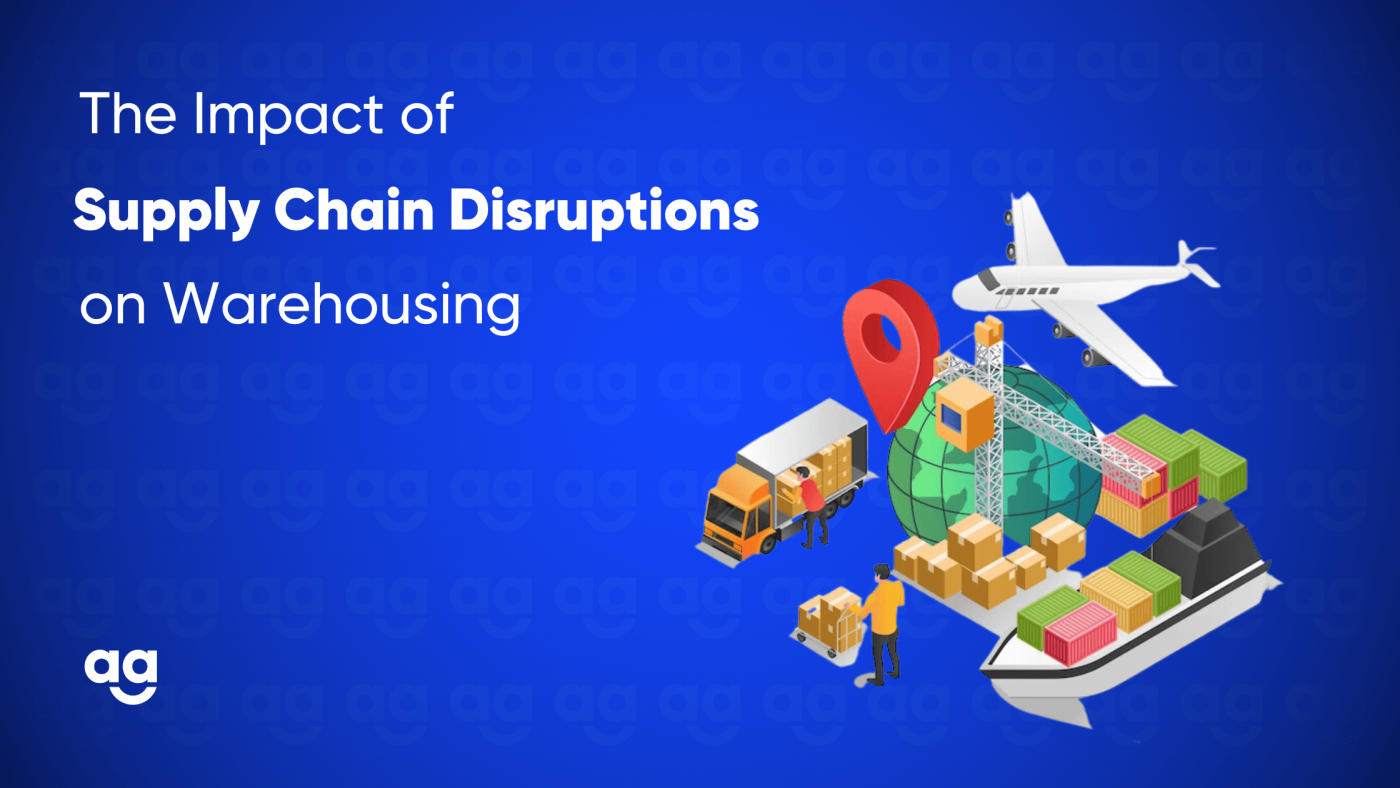Introduction
Supply chain disruptions are detrimental to a broader spectrum of business performances, like shipment delays, consumer complaints, and loss of revenue. In fact, almost 80% of businesses encountered at least one severe supply chain disruption in 2022, and 50% saw three or more. Such disruptions directly impact warehouse logistics, causing a loss of ROI.
Studies show that in 2022, CBRE data revealed that warehouse vacancy was at a record low of 3.6%. This highlights how integral warehousing is in the logistics process and how susceptible it is to external interruptions.
In this blog, we’ll discuss the various impacts of supply chain disruptions on warehouse logistics.
Read on!
What are Supply Chain Disruptions?
A disturbance in the flow of goods and services that an organization depends on for the operation of its business is known as a supply chain disruption.
Some of the main reasons for supply chain disruptions include the following:
- Natural disasters
- Geopolitical unrest
- Transportation problems
- Supplier troubles
- Quality problems
- Unanticipated fluctuations in demand
Sales drop due to product shortages, partial order fulfillment, and delivery delays, hindering the ability to satisfy end-customer demand. To maintain consistency and resilience in operations, firms must have measures in place to reduce and handle supply chain disruptions.
Role of Warehousing in Supply Chain
In addition to acting as intermediate storage spaces, warehouses give supply chain managers the option to cut costs. This is done by maximizing the purchase of inventory, minimizing shipping expenses, and accelerating the delivery process.
Even packing products for promotional uses or tailoring the package for final-mile delivery is permitted by warehouse logistics.
Warehousing logistics make sure products reach the final consumer and that they experience the most effective chance of connecting with your business.
30% of businesses report revenue increases after improving their packaging. This highlights the significance of warehousing not just as a storage facility but as a strategic tool that enhances customer satisfaction.
Impact of Supply Chain Disruptions on Warehouse Logistics
Supply chain disruptions can take many forms and have the potential to interrupt regular operations at the warehouse.
Below are some major points that highlight the impact of supply chain disruptions on warehouse logistics:
1. Space Issues
The primary resource in a warehouse is space. The majority of experts believe that a warehouse operates at its most effective level when 80–85% of its floor space is occupied.
Supply chain disruptions occur during a demand surge for particular products without any prior prediction in the market. For example, masks, cleaning wipes, and hand sanitizers were suddenly in demand during the Covid-19 pandemic. According to Nielsen Holdings Plc, even the sales of Chyawanprash grew by 283% during the pandemic. This highlights the crucial need for businesses to maintain adaptive supply chains and flexible inventory management systems.
2. Inventory Management Issues
Administrators keep track of what is currently in inventory and prepare for future orders. When products enter and exit the warehouse, they are recorded in the warehouse inventory management system.
3. Disruption in Goods Organization
Supply chain disruptions directly impact the floor space and organizational layout of the warehouse logistics. This is due to an unexpected spike in order volume.
To effectively utilize the maximum space available in the warehouse, you need to revamp and rearrange old inventory timely.
4. Reduced Profit Systems
Manufacturing facilities occasionally struggle with contamination problems. Warehouses get closed when such restrictions are frequently brought on by calamities or viral epidemics. For instance, e-commerce firms in India leased only 3% of warehousing space during the COVID-19 pandemic.
Such supply chain disruptions necessitate major shifts in product storage and handling, shrinking warehousing profit margins.
5. Delays in Shipping
The dispatch process is the last stage before a product is shipped, be it to an end user, distribution center, or manufacturing facility. During supply chain disruptions, productions may get delayed, due to which the warehouse shipment schedule gets interrupted.
Make sure the following things happen for the process to go smoothly:
- Advance scheduling of the deliveries to be made
- Effective consignment of the items
- Verification of all necessary dispatch papers
- Quick and secure loading of the goods into the truck.
Orders can be grouped by delivery direction, kind of vehicle, customer, or order preference, among other factors, using a warehouse management system.
Wrapping Up
Mitigating supply chain disruptions is not always achievable. Disruptions at the warehouse logistics level can manifest in many different forms and have the capability to interrupt regular business operations severely.
Hence, automation of operations is an effective step towards better warehouse logistics management in crises.
If you’re looking for a solution to your warehouse logistics needs, Get in touch with Shipyaari. We ensure easy integration with warehouse and Inventory management software for speedy deliveries.







 Shipping
Shipping







